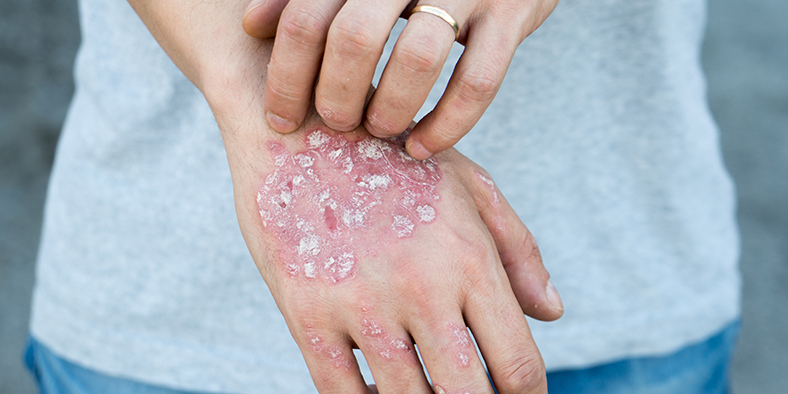In the vast medical universe, certain conditions remain elusive, enigmatic, and misunderstood. Among these is Pustular Psoriasis—a variant of psoriasis that often sends shivers down the spines of those diagnosed. Not merely a skin ailment, it can deeply impact the lives of those it afflicts, leaving them with more than just physical scars. However, the more we can learn about this mysterious ailment, the more we can equip ourselves to manage it effectively.
Pustular Psoriasis: What Is It?
Pustular psoriasis, an uncommon subtype of psoriasis, presents itself as raised, whitish, pus-filled blisters (pustules) on a base of reddened skin. However, the pus isn’t infectious—it contains white blood cells. The condition can be localized, commonly affecting the hands and feet (Palmoplantar pustulosis), or it can be generalized, covering most of the body (Generalized pustular psoriasis).
Despite its alarming appearance, this form of psoriasis, like all forms of the disease, is not contagious. It is caused by an overactive immune system that results in excessive skin cell reproduction, leading to the formation of the characteristic pustules.
Who Suffers From Pustular Psoriasis?
While psoriasis affects about 2-3% of the global population, pustular psoriasis is far rarer, impacting only a fraction of those with the condition. It can occur at any age but most often manifests in adulthood. Pustular psoriasis does not discriminate—it affects people of all races, genders, and ethnic backgrounds.
Some triggers for pustular psoriasis include stress, infection, exposure to certain medications like lithium and corticosteroids, rapid withdrawal from systemic or topical steroids, and pregnancy. However, the condition is largely unpredictable, making its onset and flare-ups challenging to foresee.
The Impact of Symptoms: Beyond Skin Deep
Pustular psoriasis has both physical and psychological repercussions. The physical symptoms include fever, chills, severe itching, rapid pulse, exhaustion, anemia, weight loss, muscle weakness, and in rare cases, organ failure. These symptoms are not limited to severe cases, which underscores the profound impact this condition can have on a person’s health.
However, the psychological toll is equally—if not more—significant. The visible manifestations of the condition can result in feelings of embarrassment and social stigma. Patients often report feeling anxious, depressed, and isolated. This increased psychological stress can, in turn, exacerbate the condition, creating a vicious cycle that is difficult to break.
Living With Pustular Psoriasis: The Limitations
Living with pustular psoriasis presents its unique challenges. Beyond the physical discomfort and potential health risks, the unpredictable nature of the condition often makes it difficult for those affected to plan their lives. Flare-ups can occur suddenly, necessitating changes to work schedules, social plans, and even travel arrangements.
Additionally, there is currently no known cure for pustular psoriasis. Treatment typically focuses on managing symptoms and trying to prevent flare-ups. This can involve the use of topical treatments, systemic medications, light therapy, or a combination of these.
While these treatments can be effective, they can also have side effects and limitations. Topical treatments, for instance, can be time-consuming and messy. Systemic medications and biologics may have side effects ranging from mild to severe. And while light therapy can be beneficial, it requires regular hospital visits, making it a less practical option for some.
Despite these challenges, it’s important to remember that ongoing research and advancements in holistic healing continue to provide hope for better treatments and, ultimately, a cure.
Could This Be the Dawn of a New Era in Psoriasis Treatment?
Our journey through the world of pustular psoriasis might seem grim, but it’s not the end of the road. The world of holistic research is bustling, continually opening up new avenues for advancements. Our breakthrough psoriasis treatment is one such advancement and it could be the solution you’ve been looking for.
Our treatment takes the approach that your psoriasis is just a symptom. Something deeper within you is the cause for your auto-immune skin condition.
Want to know more? We encourage you to dive-into our ground-breaking series entitled “Solving Psoriasis: Empowered Healing Beneath the Surface“. Click the button below to begin.

